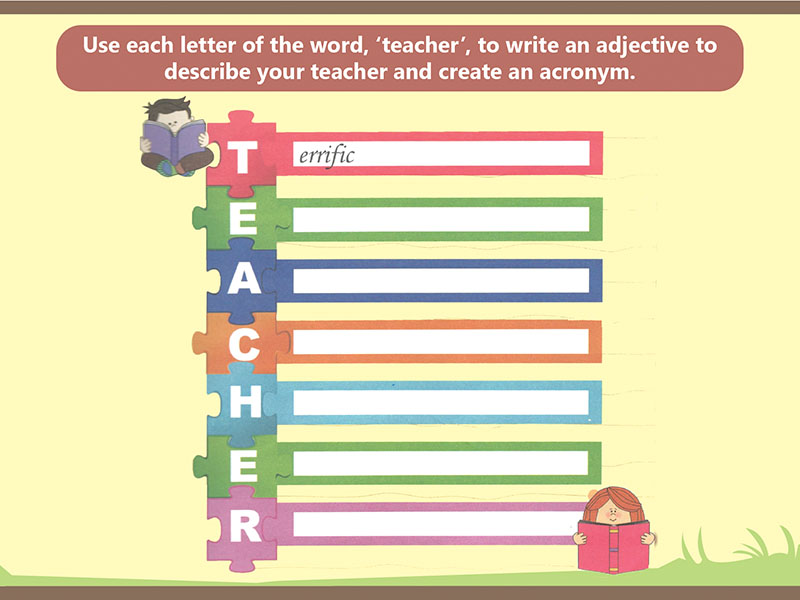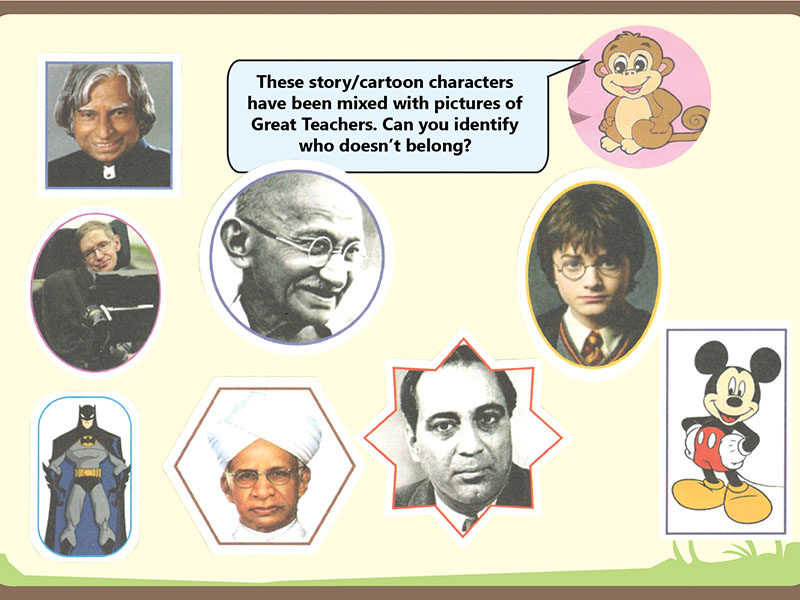No products in the cart.
When I grow up I want to be a Teacher just like the Mahatma…
When I grow up, I want to be a teacher just like the Mahatma…
Did you know?
“A teacher who establishes rapport with the taught, becomes one with them, learns more from them than he teaches them.” — Mahatma Gandhi
Gandhiji’s views on education
Mahatma Gandhi, though a global icon of leadership and non-violence, often admitted he had poor handwriting and was embarrassed by it! Yet, Bapu was a great believer in QEFA (Quality Education for All) and wanted to reshape India’s education system.
His ideas were influenced by the Russian writer Leo Tolstoy. Gandhi believed children should learn not just from textbooks, but also from nature, gardening, and their environment. As a boy, he disliked the pressure of academics and wanted education to be more informal, joyful, and holistic.
He developed his famous model of ‘Basic Education’ (Wardha Education System), which focused on learning with the head, heart, and hand. For him, education meant not only reading, writing, and arithmetic but also critical thinking, values education, and vocational skills.
For instance, he often said the charkha (spinning wheel) could be used to teach multiple subjects — maths (by counting yarn rounds), history (origins of cotton), and geography (types of soil suitable for cotton).
Although Gandhi valued good handwriting, he disapproved of pressuring young children to write too early. Instead, he encouraged them to draw lines, curves, animals, and birds — believing drawing is the foundation of writing.
Fun fact: Bapu was ambidextrous — he could use both hands equally well!
And above all, Gandhi was firmly against corporal punishment in homes and schools, promoting learning through love, respect, and non-violence.
Inspired to teach?
Apart from being a classroom teacher, there are many education-related careers you could aspire to:
Curriculum developer – designs textbooks, lesson content, and resources for teachers.
Education inspector – evaluates schools to ensure they meet quality standards.
Learning mentor – helps children overcome social, emotional, or behavioural challenges.
Special needs teacher – supports children who require extra help or advanced programmes.
Educational psychologist – guides children with learning difficulties by creating personalised study pathways.
Children need inspiring role models, and who better than Mahatma Gandhi, the Father of the Nation, who masterminded India’s freedom struggle and dreamt of a future where education meant much more than exams and marks!
This excerpt is from Growing Up with the Mahatma by Dr Swati Popat Vats, president of the Early Childhood Association of India and the Podar chain of preschools. Each chapter explores a different ‘avatar’ of Gandhiji — from animal activist to fitness expert, chef to teacher — with stories, puzzles, and quizzes to make learning fun.


Post Views: 60
Tags: ParentsWorld July 2025
















Add comment